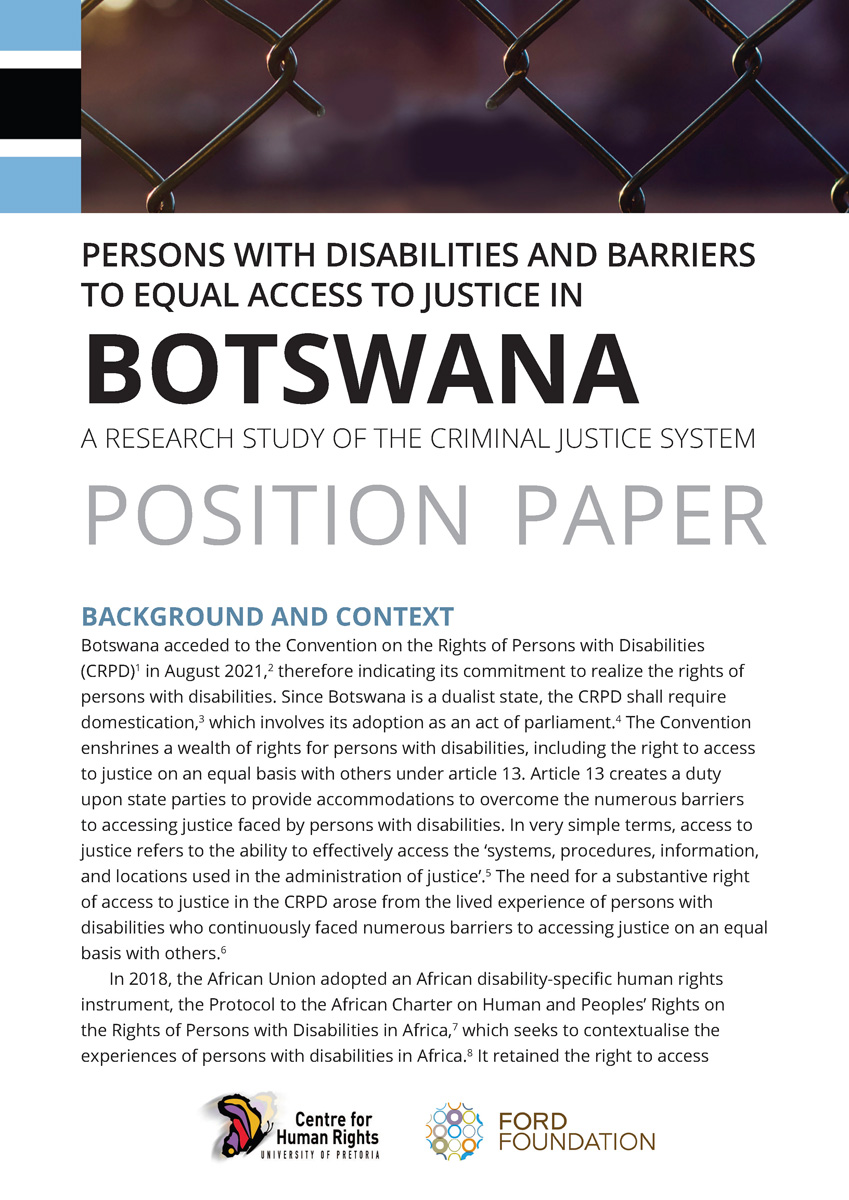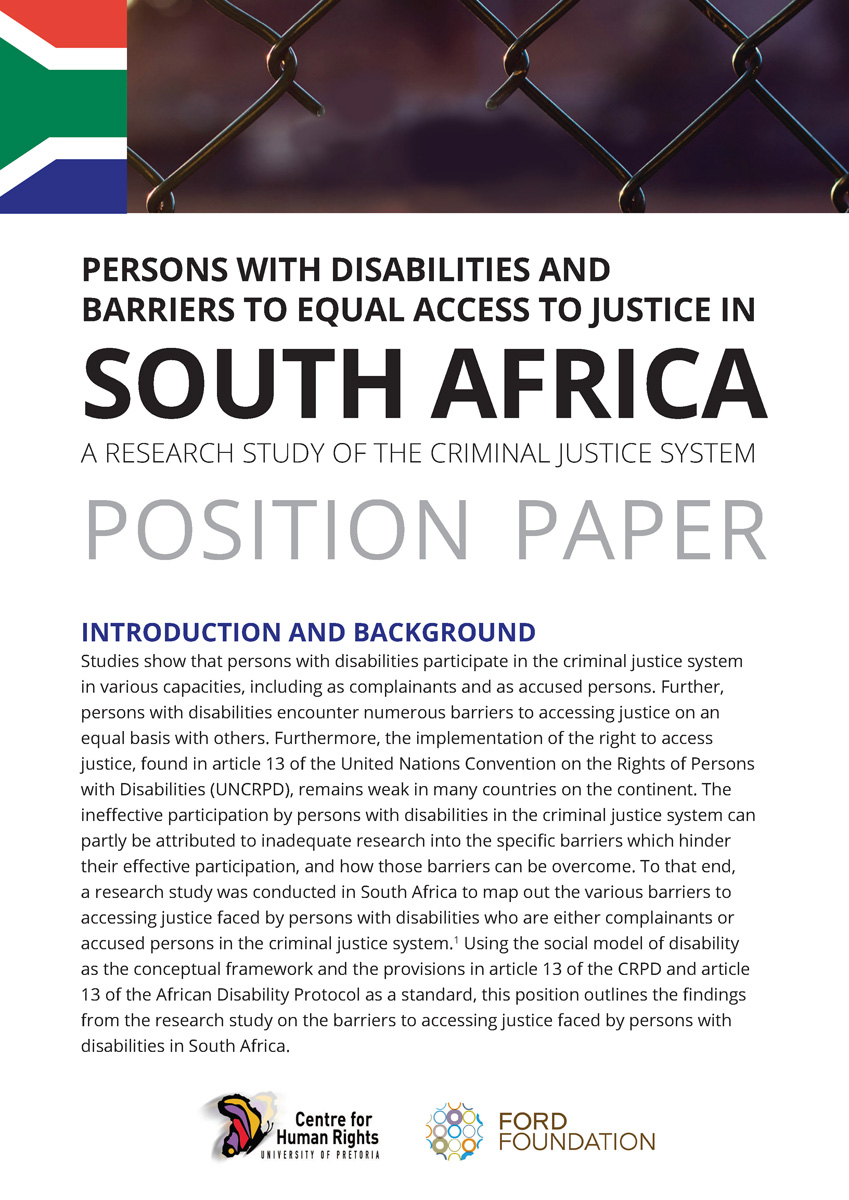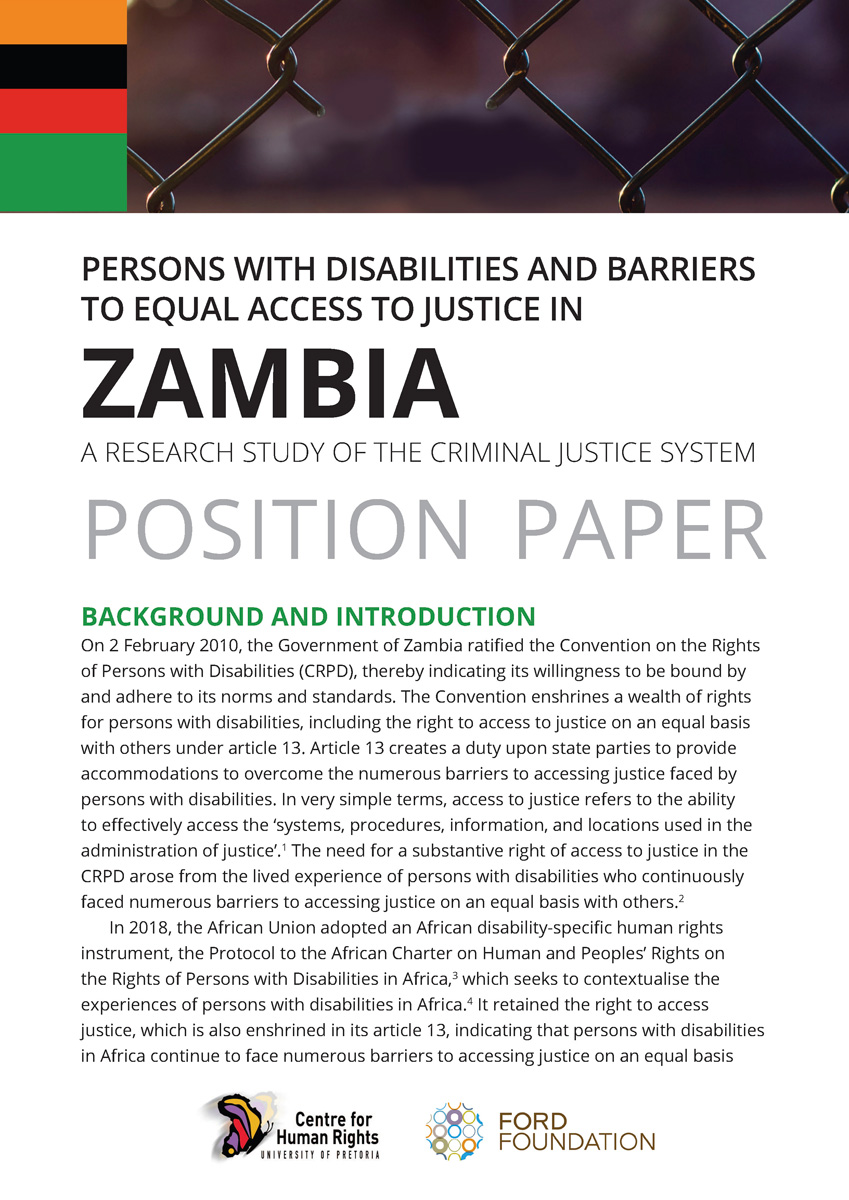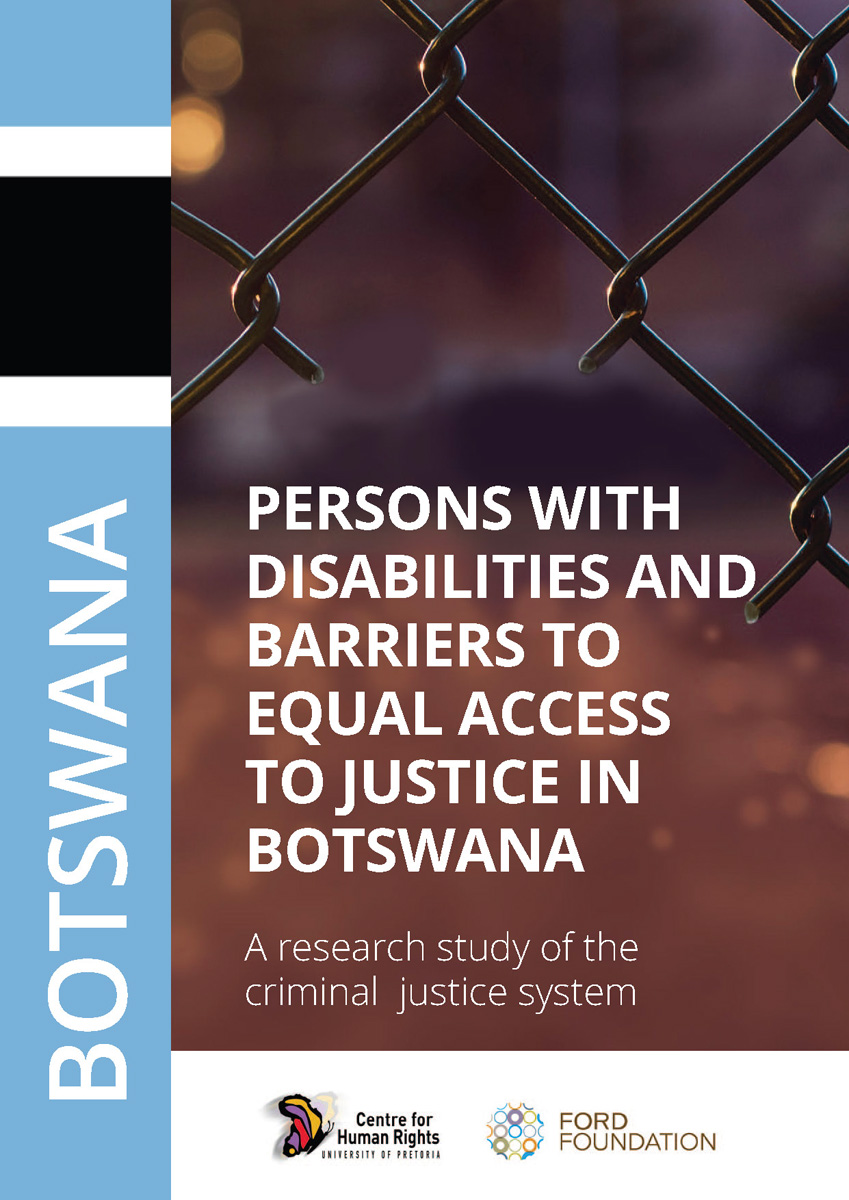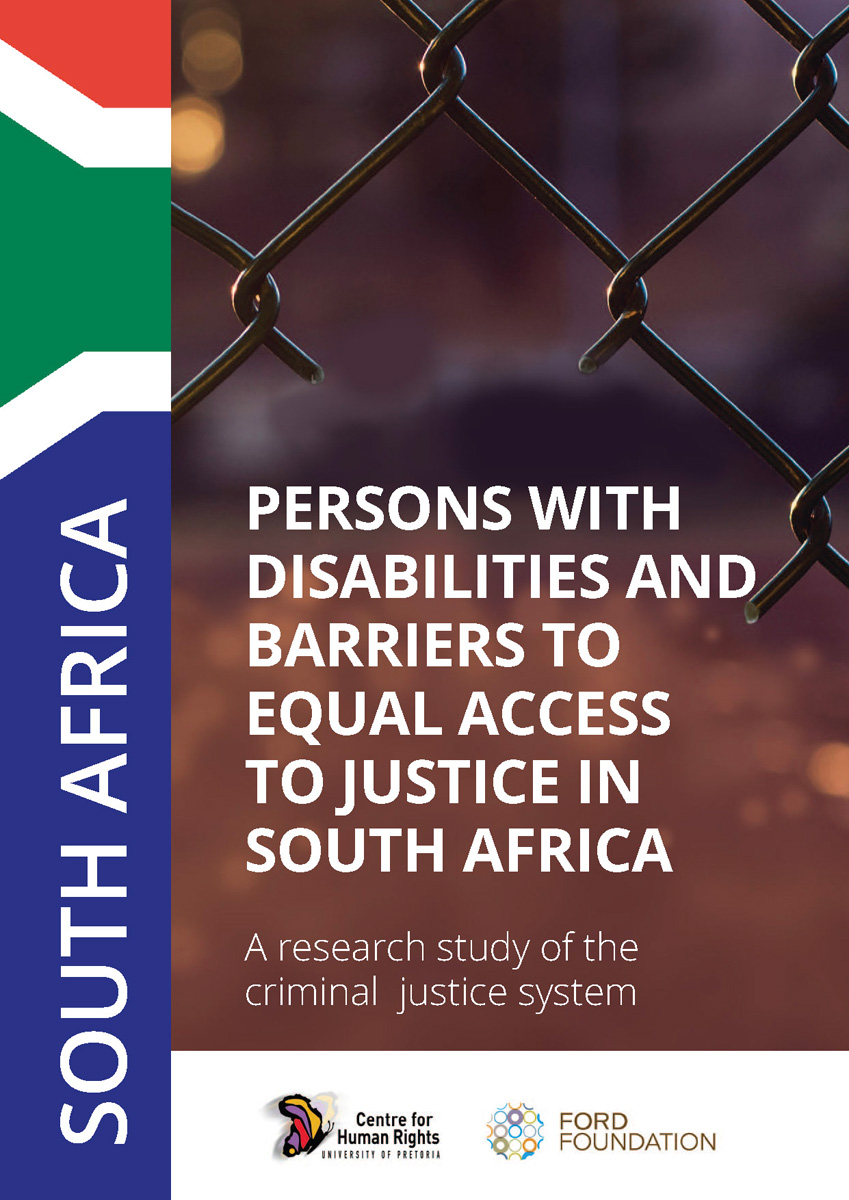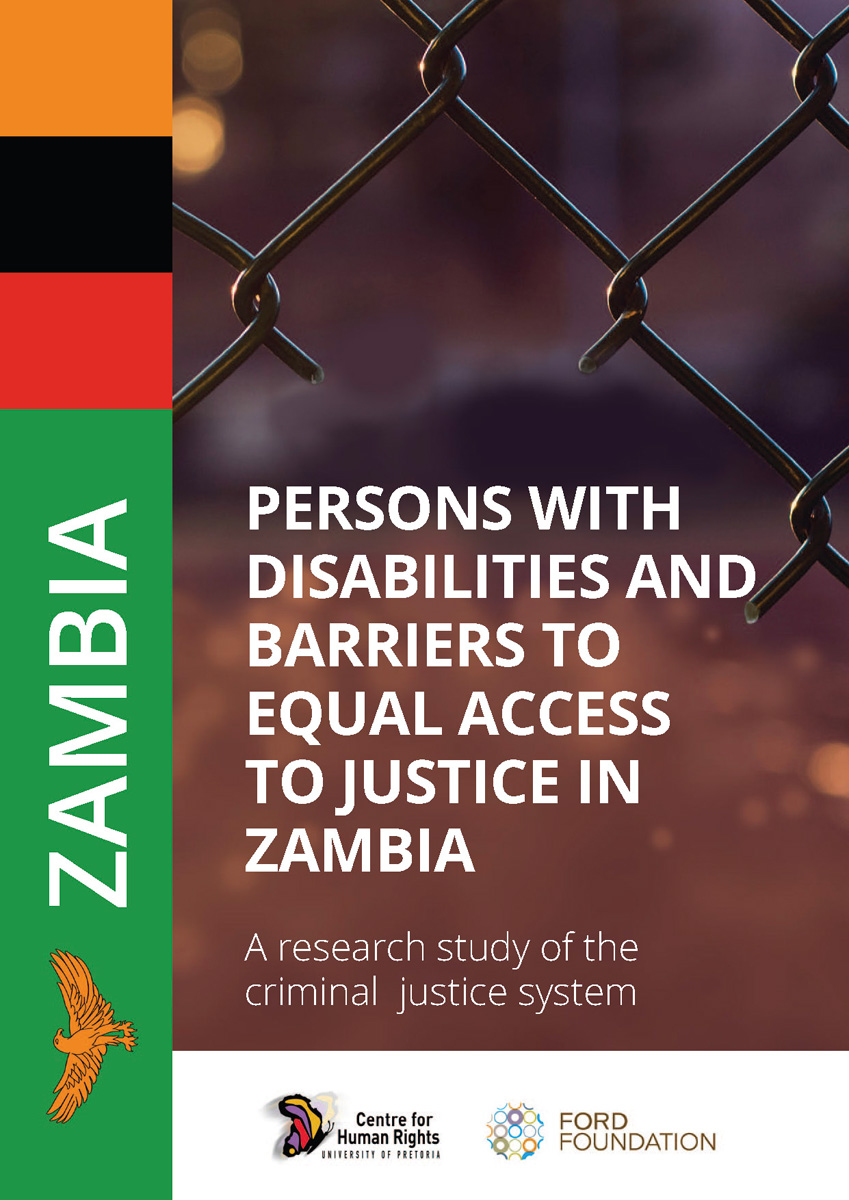The Disability Rights Unit, Centre for Human Rights, University of Pretoria, conducted a research study to map out the barriers faced by persons with disabilities in accessing the criminal justice systems in Botswana, South Africa and Zambia. Botswana, South Africa and Zambia have ratified the United Nations Convention on the Rights of Persons with Disabilities (CRPD) in 2021, 2007 and 2010, respectively. The (CRPD) enshrines the rights of persons with disabilities, including the right to access justice on an equal basis with others under article 13.
In 2018, the African Union adopted the Protocol to the African Charter on Human and Peoples’ Rights on the Rights of Persons with Disabilities in Africa, which retains the right to access to justice in article 13, indicating that persons with disabilities in Africa continue to face numerous barriers to accessing justice on an equal basis with others. The need for a substantive right of access to justice arose from the lived experiences of persons with disabilities who faced barriers to accessing the justice system.
The CRPD and the African Disability Protocol espouse the social model of disability which understands disability as the result of the interaction between a person with impairment and attitudinal and environmental barriers. This understanding acknowledges that having an impairment alone does not make one disabled. Instead, it is the environment that takes little or no account of people with impairments that contributes to disabling people. This is distinct from the medical model, which locates the disability in the individual and responds by attempting to cure or rehabilitate the individual.
The social model of disability favours interventions intended to make changes to the external environment in response to the innate needs of the person with impairment. An example of such an intervention in the context of access to justice is the provision of accommodations. It is therefore, not surprising that one of the interventions mandated in both instruments in relation to access to justice is the provision of accommodations. Article 13(1) of the CRPD and article 13(1) of the African Disability Protocol both create a duty for states to provide procedural, age-appropriate and gender appropriate accommodations to ensure that persons with disabilities access justice on an equal basis with others. The provision of accommodations is a duty as exemplified by the fact that the denial of reasonable accommodations constitutes disability discrimination.
Using the social model of disability as the conceptual framework and the provisions in article 13 of the CRPD and article 13 of the African Disability Protocol as a standard, the research outlines the barriers to accessing justice faced by persons with disabilities in the three countries. The study involved interviews with stakeholders in the criminal justice system as well as a legislative review. The main findings from the interviews are as follows:
- Although persons with different types of disabilities participate in the criminal justice system, persons with hearing and speech impairments make up the highest number.
- Although persons with disabilities interacted with the criminal justice system both as accused persons and as complainants, the majority of the cases reported by respondents involved accused persons with disabilities.
- The respondents reported encountering a number of barriers when handling cases involving persons with disabilities, with the majority encountering communication barriers.
- There is no coordinated response to the challenges ; there was a range of responses including appropriate and inappropriate ones.
A legislative review was also conducted to determine if there are any legislative provisions that constitute barriers for persons with disabilities. A number of procedural and substantive barriers were identified. These include:
- The assessment of testimonial competence;
- The assessment of fitness to plead and detention at the President’s pleasure;
- The procedure for issuing summons;
- The narrow interpretation of the word ‘language’;
- The practice of observing and recording demeanour;
- The requirement to give oral evidence in person and in open court; and
- The failure to recognize the legal capacity of persons with intellectual and psychosocial disabilities.
Based on the research findings, the reports provides a number of recommendations as follows:
- Provide procedural and age-appropriate accommodations tailored to meet the needs of persons with different types of disabilities.
- Train all criminal justice personnel on disability rights and appropriate accommodations.
- Revise the assessments of testimonial competence and align them with the social model of disability.
- Revise the assessments of fitness to plead.
- Include a requirement to issue summons in accessible formats.
- Include sign language and other non-spoken languages within the definition of the term ‘language’.
- Either abolish the practice of observing and recording demeanour or exempt persons with disabilities from this practice.
- Provide an exception for persons with disabilities from the requirement to give oral evidence in person and in open court.
- Recognise that all persons with disabilities have the right to enjoy legal capacity.
For more information, please contact:
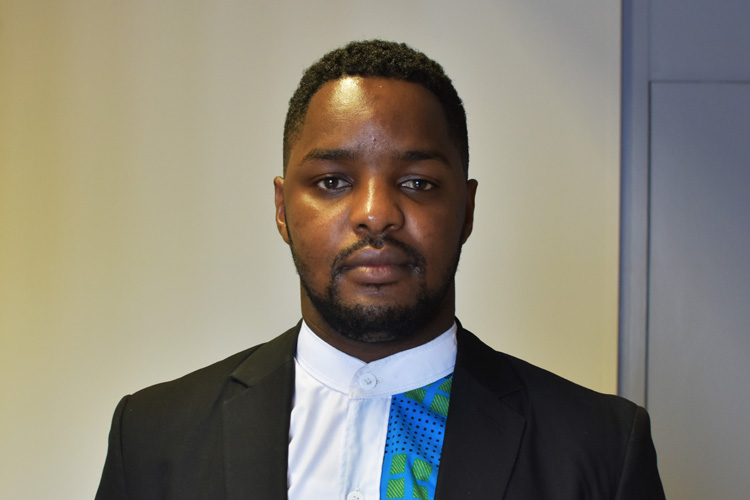
Tel: +27 12 420 3810
Fax: +27 (0) 86 580 5743
Wilson.Macharia@up.ac.za


